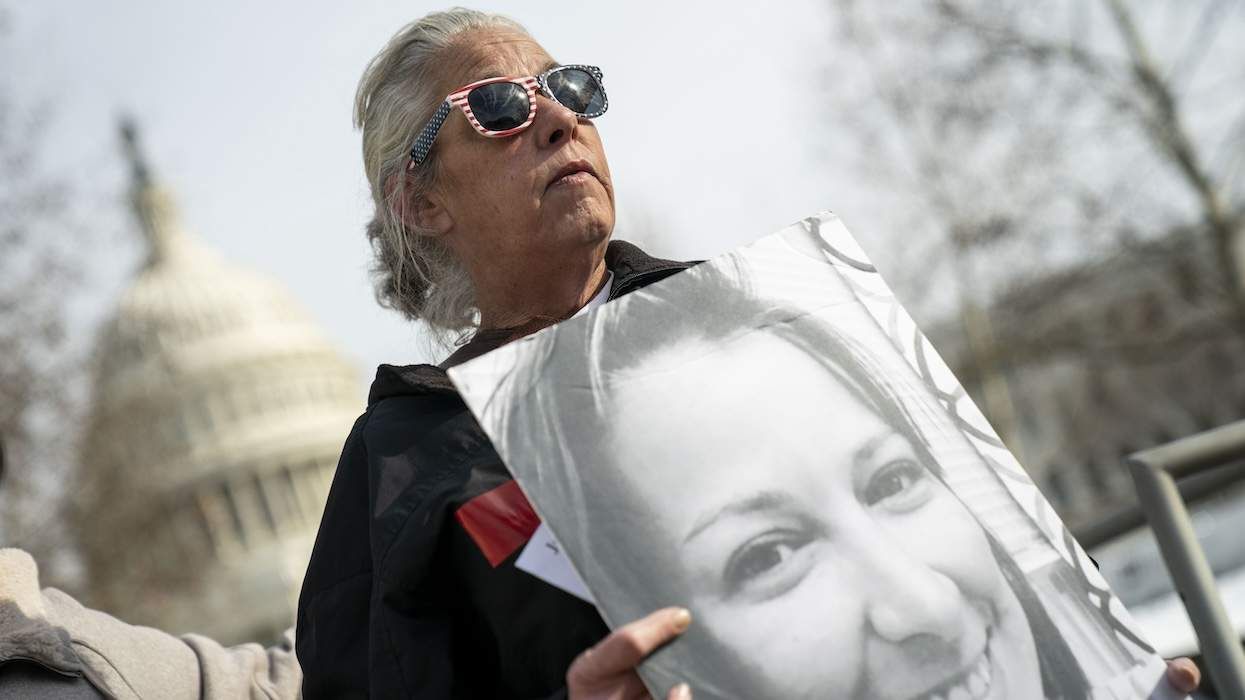After intense pressure from LGBT activists, business leaders, and even her own party, Arizona governor Jan Brewer finally vetoed the so-called "license to discriminate" bill today.
Brewer said she had "not heard one example" of any Arizonan being forced to compromise religious beliefs. And she warned the law "has the potential to create more problems than it purports to solve."
Arizona lawmakers who passed the bill, SB 1062, through both the House and Senate argued it was needed to protect against cases like one in neighboring New Mexico, where a photographer was penalized for refusing to shoot a lesbian couple's commitment ceremony. But that state has an antidiscrimination law on the books that the photographer violated, whereas Arizona does not. And same-sex marriages aren't recognized or legal in Arizona anyway. (For a perfect examination of this faulty logic, watch Anderson Cooper's widely circulated interview with Arizona gubernatorial candidate Al Melvin.)
Still, Brewer drew out the decision on the bill for days, letting the public uproar grow up around her. Brewer said she'd met with representatives from all sides but still painted her decision as independent, and not reflective of the cavalcade of feedback. "I call 'em like I see them, despite the cheers or the boos from the crowd," she said in a news conference announcing the veto today.
The response to her decision was swift.
"Discrimination has no place in Arizona, or anywhere else," said Alessandra Soler, executive director of the American Civil Liberties Union of Arizona, in a statement. "We're grateful that the governor has stopped this disgraceful law from taking effect, and that Arizona will remain open for business to everyone."
"With today's veto, Governor Brewer spared her state from institutional discrimination and economic catastrophe. Make no mistake, there is no better way to doom jobs in a state than by signing license-to-discriminate bills," said Human Rights Campaign president Chad Griffin in a statement.
Arizona isn't the only state where these laws are being seriously considered. Check out our roundup of the current status of bills in Kansas, Georgia, Idaho, Maine, Mississippi, South Dakota, Tennessee, and Indiana.















